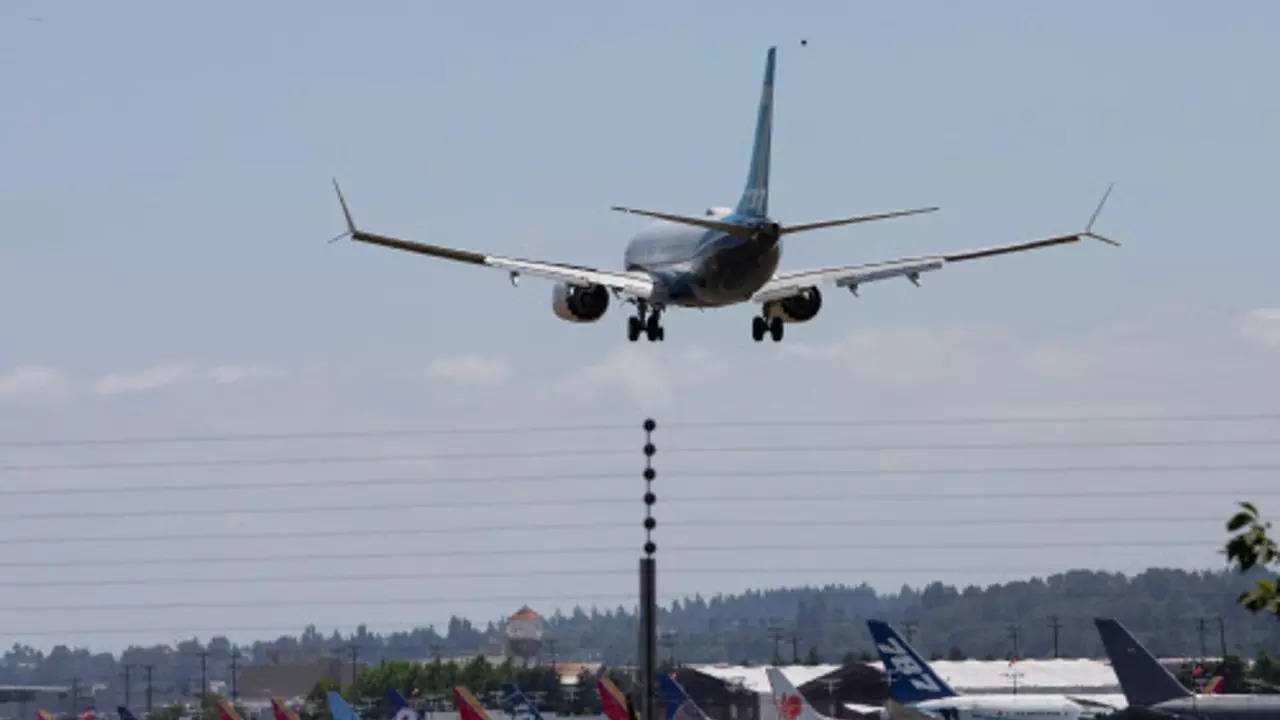Dgca: DGCA asks airlines & AAI to promote mental health for flight crew & ATCOs – Times of India
NEW DELHI: Pilots, cabin crew and air traffic controllers (ATCOs) will have to undergo detailed clinical mental health assessment at an Indian Air Force (IAF) centre whenever a concern arises regarding their mental state that could affect performance and ability to operate safely — like as after an incident or accident.
The Directorate General of Civil Aviation on Wednesday issued guidelines for the “mental health promotion of flight crew and ATCOs.”
“Flight crew and ATCOs are… accustomed to very high workloads and occupational stress situations… train regularly in techniques to stay proficient, calm in unexpected scenarios…. However, the pressures at workplace and personal life cannot be addressed through professional skills, procedures or knowledge…. Any failure to cope… can have dramatic effects on their mental wellbeing and negatively impair their professional performance,” the DGCA said in a statement.
In accordance with international norms, DGCA requires that its licence holders (like crew and ATCOs) should “have no established medical history or clinical diagnosis of any mental or behavioural disorder during their initial or renewal medical examination.”
A standalone training by a trained clinical psychologist for flight crew/ATCOs to recognise and manage the adverse effects of mental health conditions has been recommended.
The DGCA has recommended aviation organisations should organise a “peer support programme” for employees.
“This proactive and non-punitive programme will assist and support flight crew/ATCOs in recognising, coping with and overcoming any problem, which might negatively affect their ability to safely exercise the privileges of their licence. The personnel, who are enrolled in the support programme shall be handled in a non-stigmatising and safe environment,” the regulator says.
The DGCA has recommended mental health promotion to be embedded within the safety management system of organisations subject to maintenance of confidentiality.
Based on the international best practices, some of airlines undertake psychological assessment of all pilots prior to their commencement of flying duties. “In order to help pilots and ATCOs to perform their best… it is recommended each organisation may have its own customised ‘psychological assessment’ process using validated and reliable tools to match its organisational requirements,” it says.
Regarding “clinical psychology and psychiatry evaluation,” the statement says: “Whenever, there arises concerns regarding the mental state of a flight crew or ATCO that has direct or indirect effect on his or her performance and ability to operate safely (such as after an incident or accident or as assessed by the peer support programme), a detailed clinical mental health assessment needs to be undertaken at one of the Indian Air Force Boarding Centres. Such cases shall be referred by the organisation to DGCA medical directorate for permission for ‘special’ medical examination.”
The Directorate General of Civil Aviation on Wednesday issued guidelines for the “mental health promotion of flight crew and ATCOs.”
“Flight crew and ATCOs are… accustomed to very high workloads and occupational stress situations… train regularly in techniques to stay proficient, calm in unexpected scenarios…. However, the pressures at workplace and personal life cannot be addressed through professional skills, procedures or knowledge…. Any failure to cope… can have dramatic effects on their mental wellbeing and negatively impair their professional performance,” the DGCA said in a statement.
In accordance with international norms, DGCA requires that its licence holders (like crew and ATCOs) should “have no established medical history or clinical diagnosis of any mental or behavioural disorder during their initial or renewal medical examination.”
A standalone training by a trained clinical psychologist for flight crew/ATCOs to recognise and manage the adverse effects of mental health conditions has been recommended.
The DGCA has recommended aviation organisations should organise a “peer support programme” for employees.
“This proactive and non-punitive programme will assist and support flight crew/ATCOs in recognising, coping with and overcoming any problem, which might negatively affect their ability to safely exercise the privileges of their licence. The personnel, who are enrolled in the support programme shall be handled in a non-stigmatising and safe environment,” the regulator says.
The DGCA has recommended mental health promotion to be embedded within the safety management system of organisations subject to maintenance of confidentiality.
Based on the international best practices, some of airlines undertake psychological assessment of all pilots prior to their commencement of flying duties. “In order to help pilots and ATCOs to perform their best… it is recommended each organisation may have its own customised ‘psychological assessment’ process using validated and reliable tools to match its organisational requirements,” it says.
Regarding “clinical psychology and psychiatry evaluation,” the statement says: “Whenever, there arises concerns regarding the mental state of a flight crew or ATCO that has direct or indirect effect on his or her performance and ability to operate safely (such as after an incident or accident or as assessed by the peer support programme), a detailed clinical mental health assessment needs to be undertaken at one of the Indian Air Force Boarding Centres. Such cases shall be referred by the organisation to DGCA medical directorate for permission for ‘special’ medical examination.”
For all the latest business News Click Here
Denial of responsibility! TechAI is an automatic aggregator around the global media. All the content are available free on Internet. We have just arranged it in one platform for educational purpose only. In each content, the hyperlink to the primary source is specified. All trademarks belong to their rightful owners, all materials to their authors. If you are the owner of the content and do not want us to publish your materials on our website, please contact us by email – [email protected]. The content will be deleted within 24 hours.


